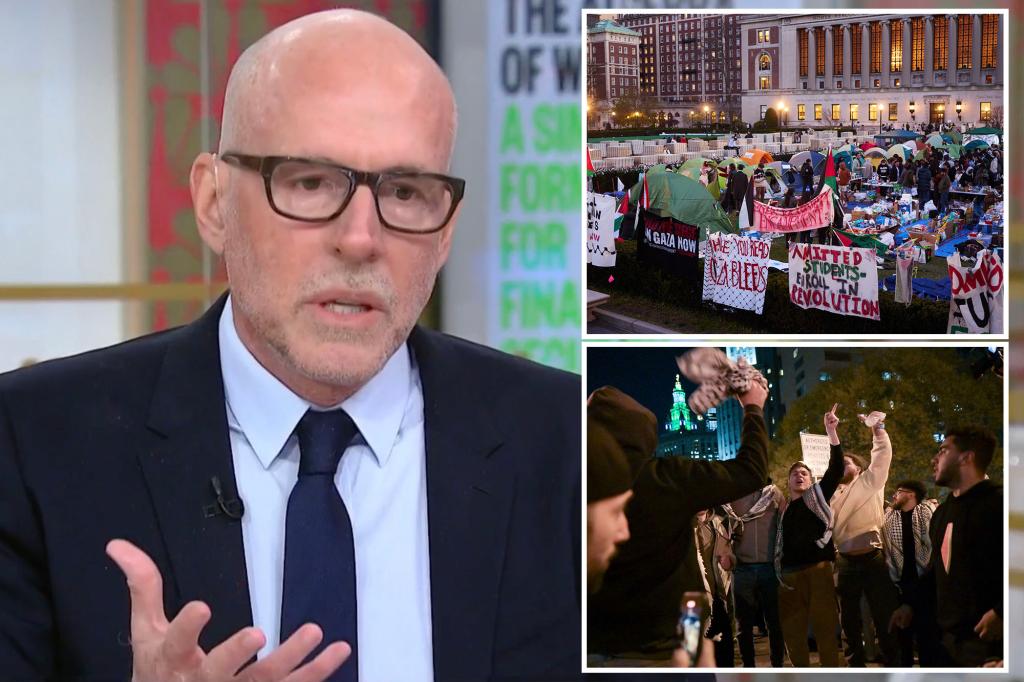NYU Professor Scott Galloway criticized anti-Israel student protesters for spreading antisemitism while claiming that hate directed towards other groups would never be tolerated. He expressed frustration at the double standard that allows such behavior to occur on college campuses, noting that if he had made similar hateful comments about other minority groups, he would face severe consequences. Galloway highlighted the arrest of over 130 NYU students during anti-Israel protests, indicating the disruptive nature of these demonstrations on campus.
Galloway attributed the tolerance for antisemitism among students to various factors, including the influence of content on platforms like TikTok. He noted that the prevalence of pro-Hamas or pro-Palestine videos on TikTok compared to those in support of Israel may be shaping students’ perceptions. Additionally, Galloway expressed concern that students are conflating the civil rights movement with the ongoing conflict in Gaza, leading to a skewed view of the situation. He suggested that students may have been influenced by a theory propagated by NYU professors regarding identifying oppressors based on race and wealth.
The protests at NYU mirrored similar demonstrations across the city and nation, with college campuses serving as focal points for antisemitic protests following the conflict between Hamas terrorists and Israel. Videos from the protests showed demonstrators marching with bright flares, waving flags, and chanting slogans in support of Gaza. The protests included demands for the college to divest from weapons manufacturers and sever ties with Tel Aviv University. The NYPD intervened, arresting 133 protesters during the NYU demonstration in an effort to maintain order.
In addition to the protests at NYU, similar incidents occurred at Columbia University, prompting concerns about the safety of students on campus. Classes were moved online at Columbia due to fears of escalating antisemitism, with over 100 arrests made in relation to the protests. A prominent rabbi at Columbia urged students to stay home amid rising tensions, emphasizing the need to address antisemitism within the university community. The protests at both NYU and Columbia highlighted the complex dynamics surrounding the Israeli-Palestinian conflict and its impact on college campuses.
Galloway, in his critique of the anti-Israel protests, raised concerns about the manipulation of students through social media platforms like TikTok, which he believes contribute to a skewed perception of the conflict. He underscored the importance of critical thinking and the need to discern accurate information from propaganda in shaping opinions. Galloway’s remarks shed light on the challenges faced by educators in addressing complex geopolitical issues within academic settings, particularly when tensions escalate to the point of disrupting campus activities.
The clashes between pro-Palestine and pro-Israel students at NYU reflect broader societal divisions and highlight the need for constructive dialogue and understanding to bridge ideological differences. The arrest of protesters and the disruption of classes underscore the urgency of addressing hate speech and bigotry on college campuses. Galloway’s call for a reevaluation of the double standard applied to different forms of hate speech serves as a reminder of the importance of upholding principles of free speech while also condemning discrimination and prejudice. Overall, the incidents at NYU and Columbia underscore the challenges of navigating sensitive political issues within academic environments and the imperative of fostering respectful discourse and peaceful resolution.


